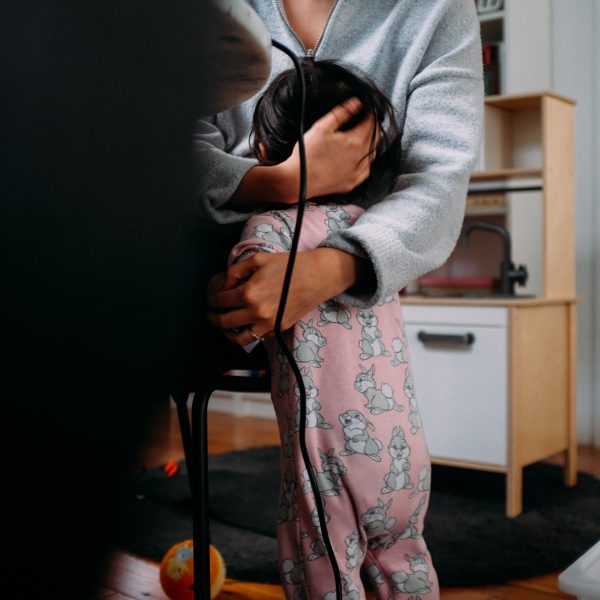Brain boost at 16 months shown in University of Bristol and Oxford University study

Toddlers engage more regions of their brains around 16-months to help them develop important cognitive skills enabling them to follow simple instructions and control impulses, a new study led by the Universities of Bristol and Oxford has shown.
Researchers at the Oxford University Baby Lab and Bristol University Baby Lab sought to examine the brain activity of 16-month-old toddlers by using a child-friendly brain imaging technique called functional near-infrared spectroscopy (fNIRS).
They gave 103 toddlers a simple touchscreen task to complete that would require them to use inhibitory control skills. This experiment allowed researchers to see which brain areas were activated when inhibitory control skills were used. The study replicated a previous experiment with the same group of children when they were 10 months old.
Inhibitory control is one important executive function, and is a skill which allows individuals to stop themselves from doing something out of impulse, habit or temptation. It’s already known that inhibitory control begins to develop in infancy and grows into early childhood. However, until now, the brain mechanisms involved in its development were unclear.
The earlier study found that 10-month-olds used the right side of their prefrontal and parietal cortex for inhibitory control. In this latest study, the team showed that by 16 months, toddlers use the left parietal cortex and both sides of the prefrontal cortex more extensively.
Interestingly, these brain changes occur despite how well children performed in the task staying the same between 10 and 16 months of age. Testing the same group of children at 10- and 16-months of age, the team found, as babies grow into toddlers, they continue to struggle to stop themselves from doing a habitual action, but the brain activation associated with this skill changes dramatically. This indicates that 16-month-old toddlers are using more areas of the brain than at 10 months even if their observable skills remained the same.
The results reveal that 16 months is a critical period for brain development, enabling toddlers to follow simple instructions and control impulses.
The study was led by Abigail Fiske, postdoctoral researcher at the University of Oxford, and Karla Holmboe, Associate Professor in Developmental Science at the University of Bristol’s School of Psychological Science.
“Our findings contribute new knowledge about the role of brain areas in early development and could help future research piece together a picture of how an important cognitive skill (inhibitory control), and the brain areas involved, develop from infancy to adulthood,” the pair said.
Image credit: University of Bristol, supplied with release
Popular

Workforce
Quality
Research
When did it start to go wrong?
2025-12-18 08:00:46
by Fiona Alston

Quality
Workforce
Practice
Research
Let’s not lose the word 'Children'
2025-12-18 07:45:13
by Fiona Alston

Practice
Quality
Marketplace
Research
Introducing the Orbit Mobile STEM Shuttle: Taking imagination and innovation on the road
2025-12-19 08:00:28
by Contributed Content














